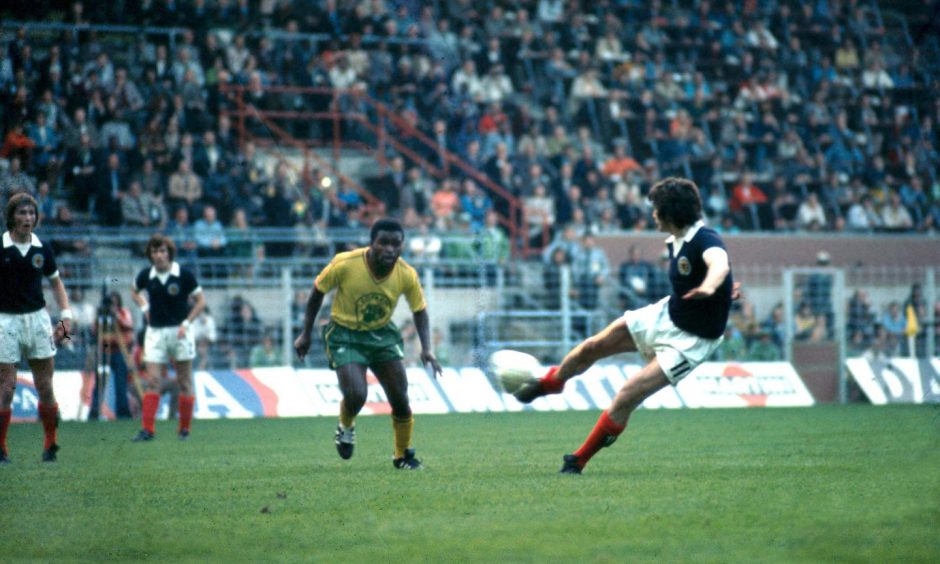
Peter Lorimer grew up through the wall from the Regal cinema in Broughty Ferry and scored a blockbuster on football’s biggest stage.
Lorimer opened the scoring with a strike of pure beauty for Scotland against Zaire at the World Cup in West Germany 50 years ago.
The footage just gets better with age.
It was a sublime moment in an illustrious career that began when he signed for Leeds United at the age of 15, after scoring 176 goals in one season while playing for his school team and Broughty YMCA.
Lorimer won two First Division titles, FA and League Cup wins, two Inter-Cities’ Fairs Cups and the Charity Shield during his time at Elland Road.
He travelled even further afield to show the world his talent after making his Scotland debut against Austria in 1969.
Willie Ormond’s 1974 side was 25/1 to win the World Cup after being drawn in a group with reigning champions Brazil, Yugoslavia and Zaire.
Scotland were Britain’s only representatives in the competition.
Three Dundonians almost made Scotland squad
Lorimer and fellow Dundonians John Duncan and Derek Johnstone were named in Ormond’s 40-man provisional World Cup squad.
Duncan and Johnstone missed out when the squad was cut down to 22 players.
A goalless draw between Brazil and Yugoslavia opened the group before Scotland played Zaire at the Westfalenstadion in Dortmund.
Ormond started Denis Law alongside Lorimer and Joe Jordan in attack.
Law won his 55th and final cap that day but it was Lorimer who lit up the pitch and brought early jubilation to the Tartan Army in the 30,000 crowd.
Scotland took the early initiative.
Jordan came close with a header from a Lorimer cross in the opening minutes.
Law made a break for Scotland on 10 minutes and sent a pass across the face of goal, where goalkeeper Muamba Kazadi bravely dived at the feet of Jordan.
Jordan dominated on high balls.
David Hay was close to breaking the deadlock on 25 minutes.
The Celtic man struck a Jordan knockdown from the edge of the box that came crashing back off the post with Kazadi beaten in the Zaire goal.
The goal did come a minute later.
Unstoppable Peter Lorimer volley put Scotland in front
Jordan headed down a cross from Danny McGrain.
Lorimer hit a stunning right-foot volley from 25 yards that flew into the top corner.
It was a trademark strike from a man who earned himself several nicknames stemming from his powerful shooting including Hot Shot, Thunder Boots and Lash.
Jordan increased the lead on 33 minutes.
A comically poor attempt at an offside trap by the Zaire defence allowed Jordan to get on the end of a free kick from Billy Bremner and head towards goal.
Kazadi fumbled the ball, which ended up in the net.
Scotland had burst into life but the expected goalfest didn’t materialise.
Ormond’s side dominated but could not find a way through the Zaire defence.
Kazadi pulled off a string of great saves.
Lorimer was a constant threat down the right flank after the break.
He was at the heart of all that was good for his side.
Jim Holton headed straight at the goalkeeper from a Lorimer cross.
Another intelligent run and cut back should have given Jordan his second goal.
The worst thing that happened to us was being asked to play Zaire in our opening game.” Scotland star Peter Lorimer.
But he scuffed a weak shot past the post from the Lorimer delivery.
Zaire showed they had attacking threat and tested Scotland’s defence late on.
Captain Billy Bremner decided they would stick with a two-goal win.
The remainder of the match was pedestrian as Scotland took the foot off the gas.
The Scottish team left the field with whistles of disappointment sounding in their ears.
Goal tally would come back to haunt Scotland
The 2-0 win took them top of the group.
But they could, and should, have won more convincingly.
The failure of Ormond’s side to go for a big win was to prove their undoing.
Lorimer started the second game against Brazil in Frankfurt with Martin Buchan replacing John Blackley and Willie Morgan coming in for Denis Law.
Lorimer almost broke the deadlock on three occasions that night.
Billy Bremner came even closer.
He missed a glorious chance two feet from goal.
The game finished goalless and Yugoslavia won 9-0 against Zaire.
The arrival of singer Rod Stewart in the bar after the game helped to lighten the mood.
They enjoyed drinks and a sing-song with Rod the Mod.
The Scots could still qualify if they could beat Yugoslavia in the final group game, while Brazil had to better Scotland’s score against Zaire.
However, with just nine minutes to go the Scots fell behind to a Stanislav Karasi goal.
Joe Jordan levelled from close range at the death.
It was not enough.
Brazil won 3-0 against Zaire.
The Scots ended up being eliminated on goal difference.
Scotland made World Cup history in 1974
Ormond’s side made World Cup history of sorts as the first team to go out of the competition without losing a game.
Even the winners, West Germany, lost a match.
Lorimer was considered to be one of the best players at the tournament, which was bittersweet consolation following the agonising exit.
“The worst thing that happened to us was being asked to play Zaire in our opening game,” said Lorimer.
“We were quite pleased at the time because they were the weakest team in the group and it meant we would start off with a win.
“Unfortunately, Brazil and Yugoslavia had drawn with each other in their first match and they then knew exactly what they had to do against Zaire to better us.
“Billy Bremner has taken a lot of flak over the years for telling us to slow it down in that opening game.
“Myself and Joe Jordan had scored to make it 2-0 by half-time and Billy decided, with a hard game coming up against the Brazilians four days later, that we should just slow things down and not risk any injuries.
“The last 20 minutes was just like keep-ball.
“We had all the possession and we were quite happy with the result.
“It was Zaire’s final, really.
“They chased and harried and pressed and gave everything they had that night.
“When they lost 9-0 to Yugoslavia in their next game it was like watching a different team — their race had been run.”
Lorimer was a Leeds and Scotland great
He won 21 caps for Scotland and will be remembered as one of the greatest players to have ever come from Dundee.
Lorimer thought he might one day end up back in Broughty Ferry because he “missed the sea air and the special light on the water from the day I left”.
He never did.
The Leeds and Scotland legend passed away aged 74 in March 2021.
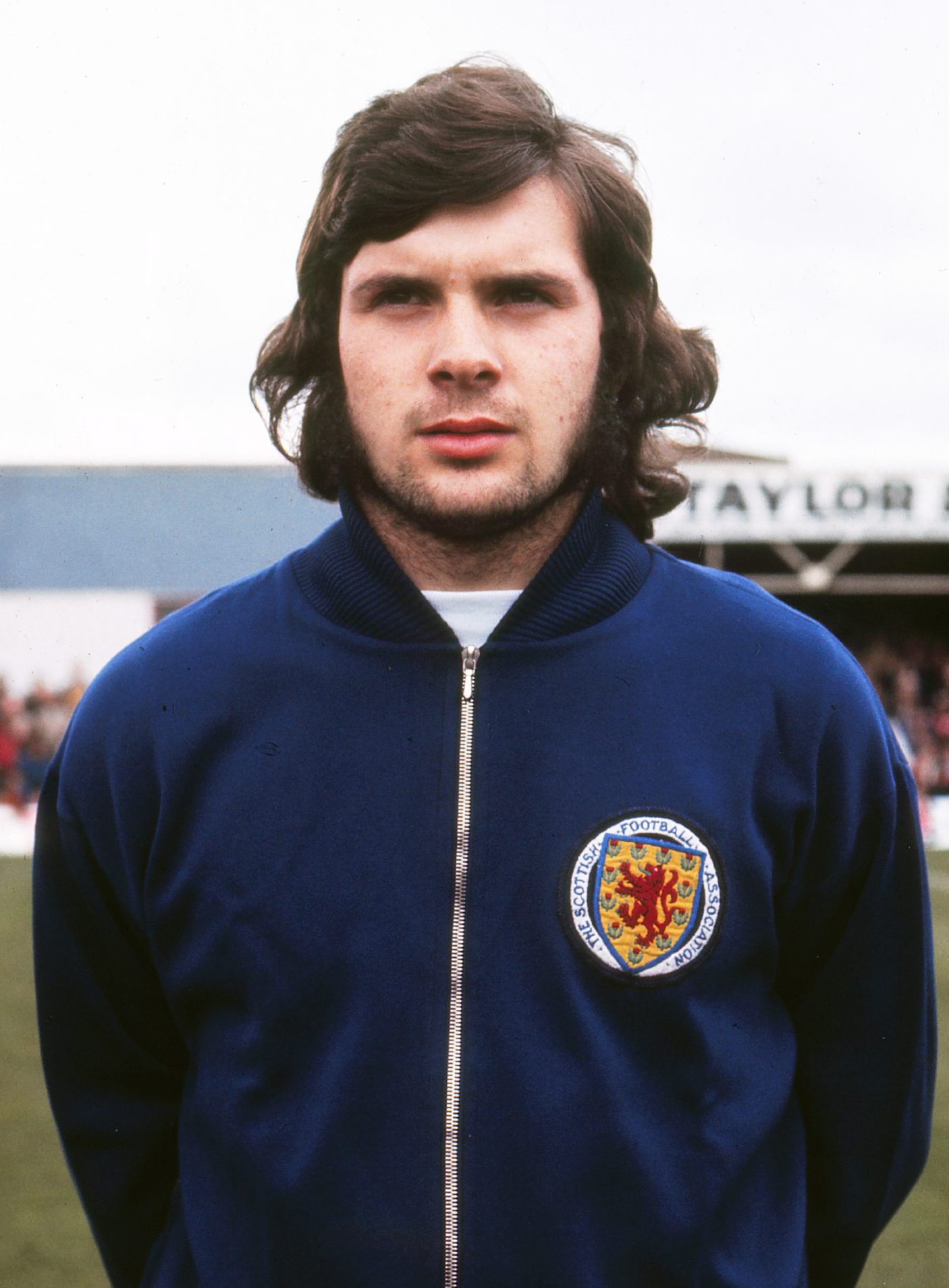
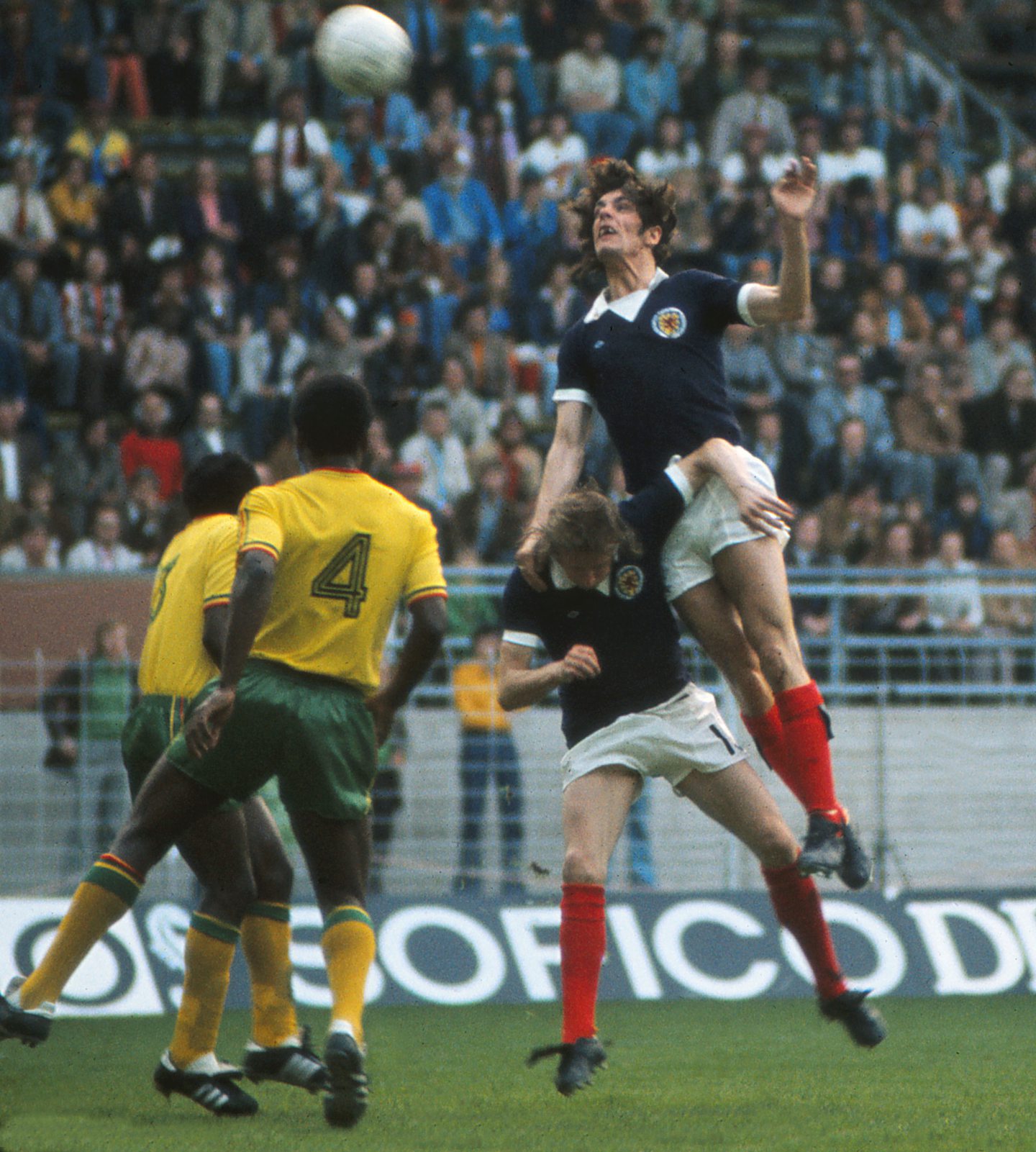
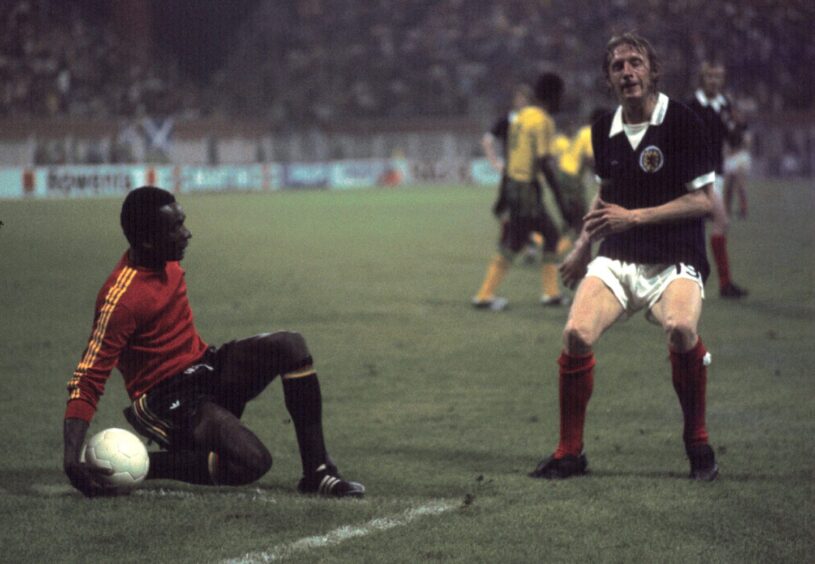
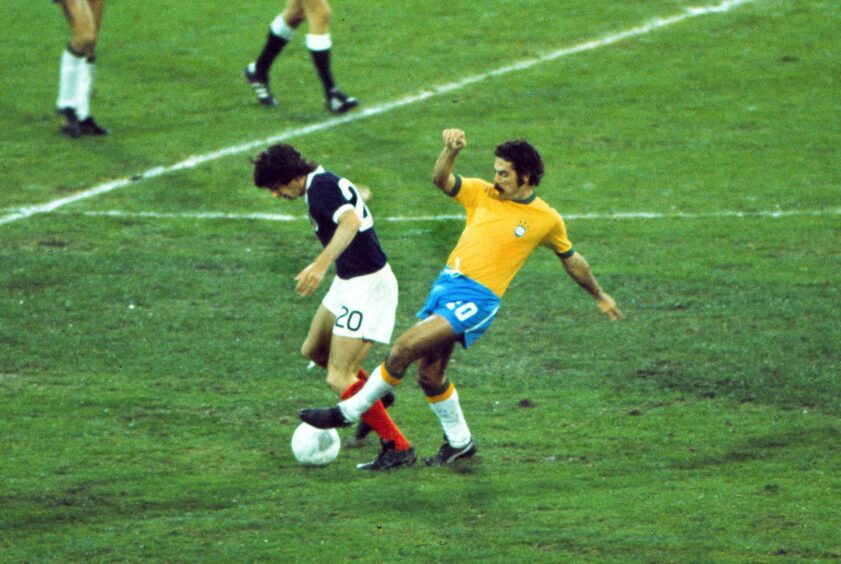
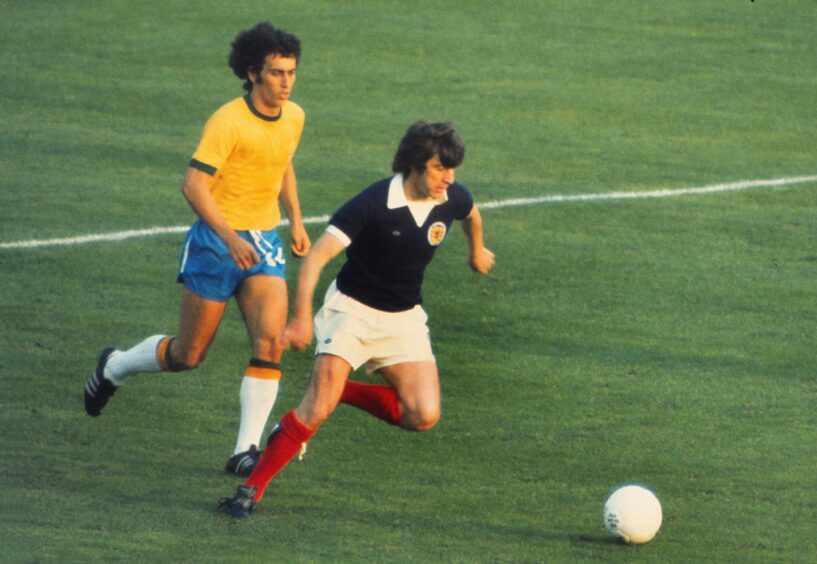
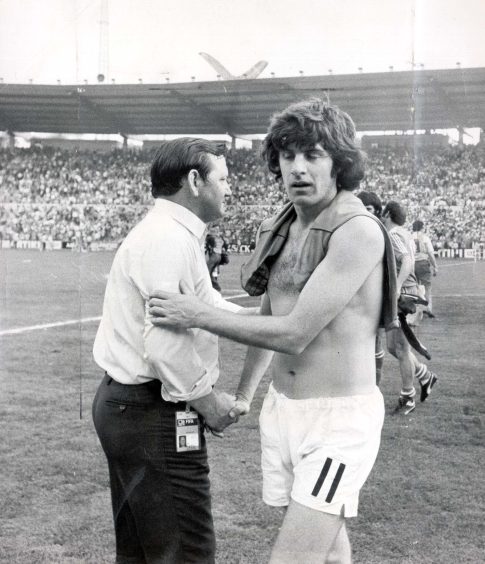



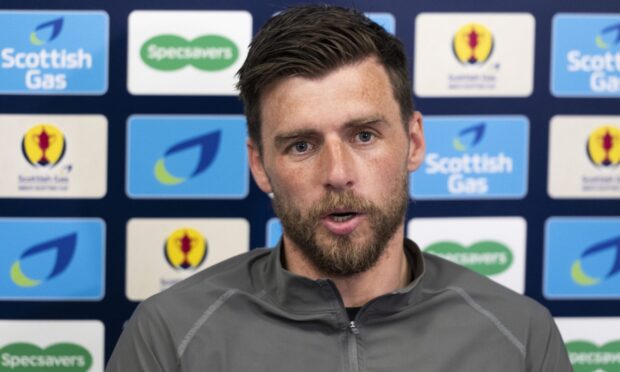





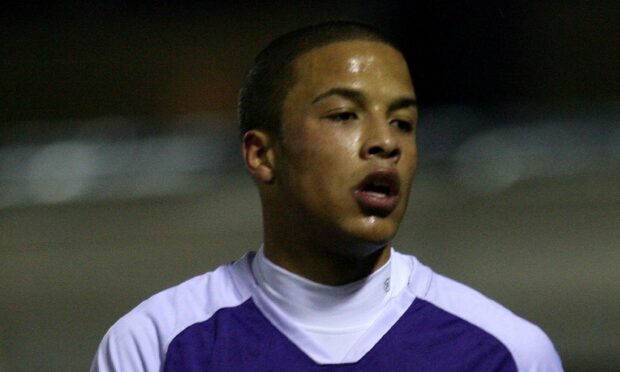
Conversation